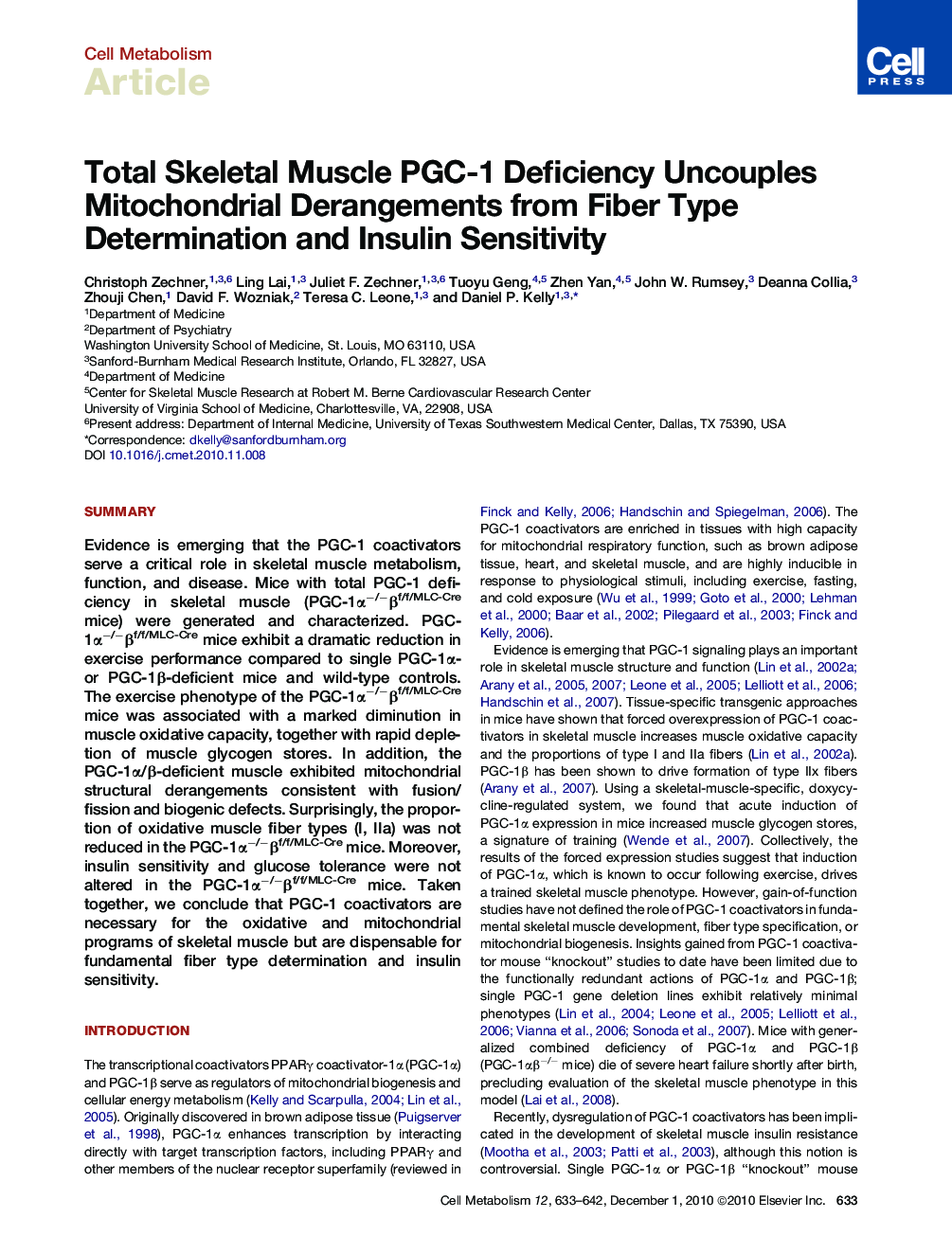| Article ID | Journal | Published Year | Pages | File Type |
|---|---|---|---|---|
| 2793296 | Cell Metabolism | 2010 | 10 Pages |
SummaryEvidence is emerging that the PGC-1 coactivators serve a critical role in skeletal muscle metabolism, function, and disease. Mice with total PGC-1 deficiency in skeletal muscle (PGC-1α−/−βf/f/MLC-Cre mice) were generated and characterized. PGC-1α−/−βf/f/MLC-Cre mice exhibit a dramatic reduction in exercise performance compared to single PGC-1α- or PGC-1β-deficient mice and wild-type controls. The exercise phenotype of the PGC-1α−/−βf/f/MLC-Cre mice was associated with a marked diminution in muscle oxidative capacity, together with rapid depletion of muscle glycogen stores. In addition, the PGC-1α/β-deficient muscle exhibited mitochondrial structural derangements consistent with fusion/fission and biogenic defects. Surprisingly, the proportion of oxidative muscle fiber types (I, IIa) was not reduced in the PGC-1α−/−βf/f/MLC-Cre mice. Moreover, insulin sensitivity and glucose tolerance were not altered in the PGC-1α−/−βf/f/MLC-Cre mice. Taken together, we conclude that PGC-1 coactivators are necessary for the oxidative and mitochondrial programs of skeletal muscle but are dispensable for fundamental fiber type determination and insulin sensitivity.
► PGC-1α/β are required for maintenance of muscle mitochondrial structure/function ► PGC-1 coactivators are necessary for muscle exercise performance ► PGC-1 coactivators are dispensable for fundamental muscle fiber type determination ► Muscle PGC-1 deficiency does not cause glucose intolerance or insulin resistance
